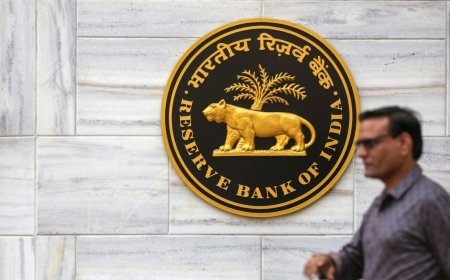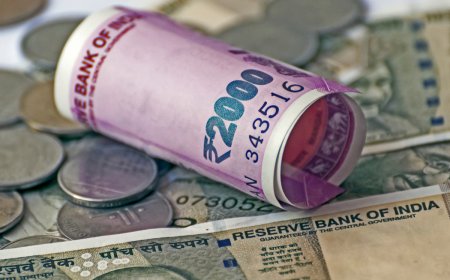Investment Word of the Day: Ex-Dividend Explained for Investors
Understand the meaning of ex-dividend, its impact on stock prices, and how investors can use this key date to their advantage. Expert insights and market context included.

Investment Word of the Day: Ex-Dividend – What It Means for Investors
Understanding how dividends impact stock prices and timing can give investors a strategic edge. Today’s focus: the term “Ex-Dividend” — a key date that every income-seeking investor should know.
What Does 'Ex-Dividend' Mean?
The term ex-dividend refers to a stock trading without the value of its next dividend payment. Investors must own the stock before the ex-dividend date to be eligible for the upcoming dividend. Once a stock goes ex-dividend, new buyers are no longer entitled to the declared dividend.
For instance, if a company sets an ex-dividend date of July 10, then any investor who purchases the stock on or after that date will not receive the next dividend payment. Only those who owned the stock by July 9 (the record date being one day later due to T+1 settlement in India) will qualify.
Market Context: Why Ex-Dividend Dates Matter
Ex-dividend dates are often accompanied by subtle market movements. On the ex-dividend date, a stock’s price typically drops by roughly the amount of the dividend declared. This drop reflects the fact that new shareholders will not receive the upcoming payout.
Siddharth Jain, Equity Analyst at Mumbai-based WealthCraft Capital, explains,
“The ex-dividend date is a small yet critical component of dividend investing. It helps investors strategically time their entry and exit, especially those pursuing dividend capture strategies.”
However, analysts caution that not all price changes around the ex-dividend date are attributable solely to the dividend itself — broader market sentiment and corporate performance also play roles.
Dividend Capture Strategy: A Double-Edged Sword
One approach that has grown in popularity among retail investors is the dividend capture strategy. This involves buying a stock just before the ex-dividend date to “capture” the dividend and then selling it shortly thereafter.
While this might seem like a quick way to earn income, the strategy is not without risks. Transaction costs, short-term capital gains taxes, and unpredictable price movement can erode profits.
Ritika Mehra, a portfolio strategist at Nova Wealth Advisors, warns,
“The dividend capture strategy may work on paper, but in real markets, it often underperforms due to frictional costs and volatility. Long-term value creation should always be the priority.”
Ex-Dividend vs. Record Date: Clearing the Confusion
The ex-dividend date is often confused with the record date. The record date is the day when the company determines the list of shareholders eligible to receive the dividend. However, because most stock markets operate on a T+1 settlement cycle, investors must buy the stock at least one trading day before the record date — hence the significance of the ex-dividend date.
For example, if the record date is July 12, the ex-dividend date would be July 11, and you’d need to purchase the stock no later than July 10.
Recent Trends in Dividend Announcements
In the Indian equity markets, large-cap companies such as Infosys, TCS, and HDFC Bank have regularly declared interim and final dividends, offering investors consistent income. These announcements are usually followed by subtle adjustments in the stock’s price once it goes ex-dividend.
In 2024, Infosys Ltd declared an interim dividend of ₹18 per share, and the stock saw a drop of approximately ₹16 on the ex-dividend date, closely aligning with historical price behavior.
Investor Outlook: What Should You Do?
Understanding ex-dividend dates is vital not just for traders but also for long-term investors who rely on dividend income for cash flow or portfolio diversification.
What should investors consider?
-
Investment Horizon: Are you a long-term holder or a short-term trader?
-
Taxation: Dividend income is taxable in India, and short-term capital gains may offset any benefit.
-
Stock Fundamentals: A healthy dividend should reflect strong company fundamentals. Avoid chasing dividends from financially weak companies.
-
Yield vs. Price Movement: Consider the dividend yield in the context of potential price dips post the ex-dividend date.
Conclusion
Ex-dividend may seem like just another date in the financial calendar, but it plays a crucial role in shaping investment returns, especially for income-focused strategies. While it offers opportunities, it also demands an understanding of the risks and a focus on the broader investment picture.
As corporate India continues to generate healthy cash flows and reward shareholders, keeping an eye on ex-dividend dates could help investors enhance portfolio efficiency — but only when used judiciously and with awareness of market mechanics.
What's Your Reaction?
 Like
0
Like
0
 Dislike
0
Dislike
0
 Love
0
Love
0
 Funny
0
Funny
0
 Angry
0
Angry
0
 Sad
0
Sad
0
 Wow
0
Wow
0












































































